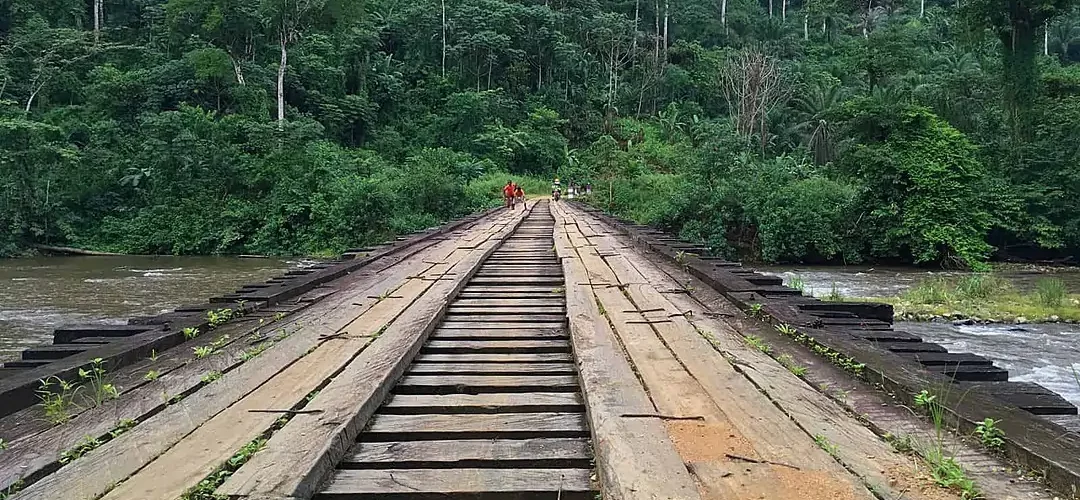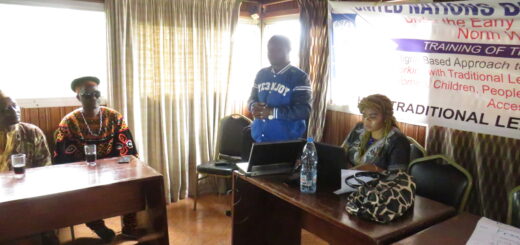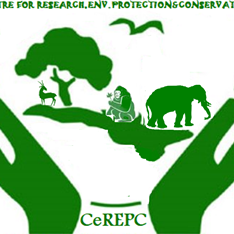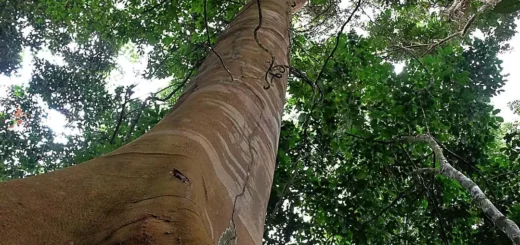The government of Cameroon has approved the creation of a new community forest in Manyu Division. The two-year Provisional Management Agreement of the community forest to be named BANCK (Bakumba, Ayukaba, Numba, Chinda, Kendem) community forest, was approved by the Minister of Forestry and Wildlife, Philip Ngolle Ngwesse, through a Ministerial Decision N o 003 of January, 3 2018.
According to the ministerial prescription, the community forest is situated in the South West Region, Manyu Division, Upper Bayang Sub-Division with villages involved being Bakumba, Ayukaba, Numba, Chinda and Kendem. It is bordered to the South of Bakumba and Ayukaba villages, to the East of the proposed BEET (Bokwa, Etoko, Egbemo and Tafu) community forest, to the North of Kendem village and to the West of Chinda and Numba villages. The BANCK community forest covers a surface area of 4874 hectares with well-defined boundaries.
The two-year convention equally allows these communities to exploit the forest under the strict supervision of MINFOF officials while a simple management plan is being developed. The signing of this document also permits the concerned communities to start executing the management operations outlined in the convention to raise funds, prepare and submit a simple management plan for the final convention.
This development is a great stride in the organisation’s drive towards ensuring the long term conservation of the biodiversity of this unique tropical rainforest through a community and municipal collaborative management approach.
The BANCK community forest is part of a rainforest corridor currently being developed, to provide genetic connectivity for isolated Cross River Gorillas populations, Nigeria Cameroon Chimpanzees, Forest Elephants, Drills, Buffaloes and other species. The community forest is situated between the Tofala Hill Wildlife Sanctuary and Takamanda National Park in the South West Region.
Inventory of the area
After the signing of this two-year provisional management agreement, the Coordinator Tofala-Mone East Corridor Rainforest Community Conservation Project, Floribert Assongacap Assongna, said the next step will be to conduct multi-resource inventory of the area. After such an inventory a management plan will be prepared and submitted to MINFOF for the final management agreement (convention). The implementation of the management plan will only come after validation and approval of the final agreement by MINFOF.
Meanwhile efforts are underway to create three other community forests and update of the management plan of the FMU11002. The realisation of this will result in the protection of over 45,000ha of pristine forest between the Tofala Hill Wildlife Sanctuary and the Mone Forest Reserve. This will contribute towards the long term protection of the over 630,000 ha in the Lebialem Highlands Conservation Complex.
Impact Created so Far
Two years after the launching of the Tofala-Mone East Corridor Rainforest Community Conservation Project, communities are able to take independent action in the management of their community forest. This is thanks to sensitisation and training on resource mapping using various modern technologies introduced by the project partners.
Also, 4874 hectares of forested land hitherto being sold for cash crop production have been rescued for conservation. Wildlife habitat has equally been secured and will lead to increase inbreeding and species population in the long run, especially when the corridor creation process will be completed.
Meanwhile there has been a great improvement in land use planning in the form of agricultural development, forest resources management and the prevention of landslides caused by deforestation. The project has also strengthened communities in their campaigns and lobbying against palm oil plantations. In addition, the project has positive effects in stimulating community cohesion because it gathers people to share information and concerns and come up with new solutions that benefit all members of the community.
The creation of the BANCK Community Forest has been successful thanks to support from international partners like Tusk Trust, Global Forest Watch and with general supervision from the Ministry of Forestry and Wildlife.



